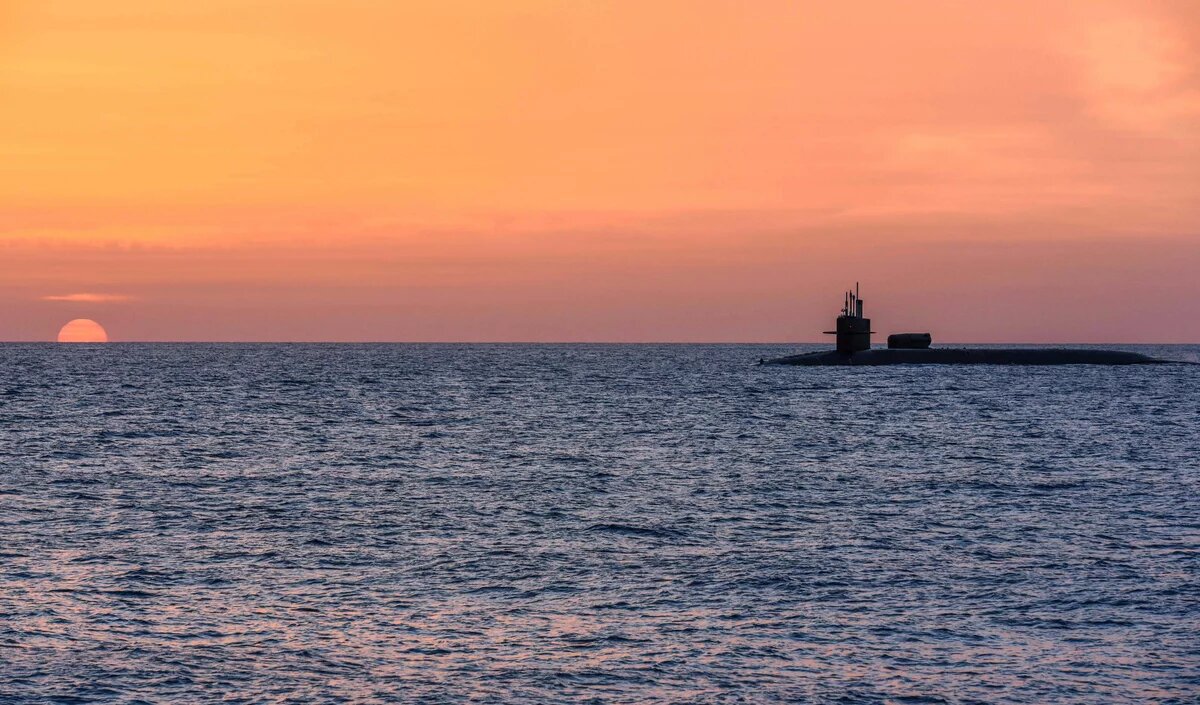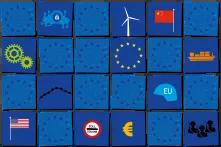The EU’s southern flank has been under immense security pressure by external actors recently. These security challenges require the EU to adopt a holistic approach and address a range of complex regional issues, making use of a wide range of tools.

From the Arab Spring to Turkey’s illegal drilling activities, in recent years, the EU’s southern flank has been under immense security pressure. As the Union seeks to emerge as a credible foreign policy actor and global security provider, who protects its interests and upholds its values and principles, the Eastern Mediterranean constitutes, depending on the perspective, a major challenge or opportunity in demonstrating its credentials. So far, Member States’ divergent threat perceptions and interests have prevented the Union from forging a coherent and effective strategy in dealing with some of the challenges plaguing the Eastern Mediterranean. Despite their aim to see Ankara engaging in diplomacy to resolve its differences with Greece, and to refrain from aggressive actions towards Cyprus, their policy has not managed to halt nor contain Turkey’s illegal activities. Nonetheless, their firmness in launching a CSDP mission off Libya's coast to enforce the UN arms embargo indicates the Union’s potential role in its periphery. For the Union to have a credible and effective strategy, it requires adopting a holistic approach in resolving the interwoven regional issues, matching the rhetoric with actions and drawing upon the wide range of tools it has at its disposal.
Interstate wars may be in decline and, undeniably, today’s world is a much safer place compared to the previous century. Yet, crises and civil wars that draw foreign powers are far from being over. The European continent is not immune to the global deteriorating security environment. In recent years, Europe has found its eastern and southern flank under tremendous pressure, due to regional conflicts and their resulting transnational threats as well as the revival of revisionist powers in the wider region. The Eastern Mediterranean is probably the epitome of the aforementioned dynamic. The Syrian and Libyan conflicts, mass migration flows, arms proliferation and regional powers’ attempts to alter the status quo, are all destabilising the region’s security and threatening its prosperity. Indeed, the situation in the Eastern Mediterranean has drawn much attention since the 2010s, initially with the Arab Spring and most recently with Turkey’s illegal drilling activities and claims over the Aegean Sea. In light of the regional developments, the European Union has responded with, among others, warnings, a migration agreement and naval deployments.
The 2000 EU Common Strategy for the Mediterranean and the 2016 Global Strategy for the European Union’s Foreign and Security Policy, which references the Mediterranean region, to date constitute the EU’s overarching texts regarding its regional aims and goals, while defining the Union’s role as a global foreign policy actor. Although both documents seek to ensure peace and prosperity at the backdrop of border security, counterterrorism, non-proliferation and water and food security, there is little clarity over the methods and tools needed to achieve them.
In the Eastern Mediterranean, Brussels faces the same old problem: EU Member States’ divergent security threat perceptions and interests prevent the formation and implementation of a unified foreign policy strategy. This has become all the more evident in the case of Turkey’s revisionist agenda. While Member States broadly agree that Ankara must halt its illegal drilling activities, resolve its differences with Greece peacefully through diplomacy, and nurture a working EU-Turkey relation, they differ on how best to achieve it. On the one hand, Germany, Italy, Spain and Malta are all pursuing a less confrontational stance, believing sanctions could trigger retaliation and an exodus of refugees and migrants in Europe. They also fear the side effects on their economies and in the case of Italy, how its interests in Libya, where Turkey plays an important role, would be impacted.
The Council Conclusions, to some extent, reflect this approach. Invitations to submit ‘’options for appropriate measures’’, including "targeted measures’’, references on ‘’all options [being] on table’’ and declared willingness to use ‘’instruments and options in accordance with Article 29 of the Treaty of the European Union and Article 215 of the Treaty on the Functioning of the European Union’’ have not materialised yet. Three years after Member States first called Turkey to cease its unilateral and illegal actions and refrain from violating Cyprus and Greece’s maritime frontiers, they have still not imposed sanctions, but on two persons under the framework for restrictive measures in response to Turkey's illegal drilling activities. Nevertheless, Member States have ‘’agreed to launch a positive political EU-Turkey agenda’’, provided ‘’constructive efforts to stop illegal activities vis-à-vis Greece and Cyprus are sustained’’.
On the other hand, Greece and Cyprus, whose sovereignty and sovereign rights are at stake, are after a more robust approach. Indeed, the current policy of repeated calls, but limited action has not proven effective. Undeniably, it has not prompted Ankara to cease its illegal activities in the Eastern Mediterranean. In what has become a trend, before a Council meeting, Turkey freezes its unilateral activities, only to resume them following the publication of the meeting’s Conclusions. The Yavuz and the Orus Reis search ships, escorted by Turkish Navy vessels, continue to breach the two EU Member States’ maritime borders, risking collisions similar to the August 2020 incident. Meanwhile, the present policy has not averted Ankara from advancing its revisionist claims, questioning the Treaty of Lausanne (1923) that established not only the modern borders between Greece and Turkey, but with most of the countries in its periphery. Mavi Vatan, or the Blue Homeland, has become the epitome of Ankara’s maritime claims in the Eastern Mediterranean and Turkey’s buzzword in describing its overall rejection of the regional status quo. Central to these claims is the perceived historical injustice that limits its presence in the Eastern Mediterranean Sea and arguably, its interest in the natural gas deposits off the coast of Cyprus and potentially in the Aegean Sea.
However, dealing effectively with the current tensions and instability is vital for the EU, as the region is not only strategically important, but its handlings there would have severe implications for the Union’s prestige as a global security actor and Member States’ unity. The lack of a more firm EU stance towards Ankara risks isolating Athens and Nicosia. Greece, which experiences daily violations of its national airspace, including overflights of inhabited areas and territorial sea, has been sceptical towards Berlin and its ability to deal with its security dilemma to a degree that was not witnessed even during the 2010 financial crisis. In response to the present situation, both Greece and Cyprus are already fostering their bilateral relations with regional states and are training extensively with like-minded countries.
For instance, in November 2020, Athens reached a strategic partnership with the United Arab Emirates (UAE) that includes a mutual defence clause, to be activated in the event one of the two countries’ territorial integrity is threatened. Even though the agreement explicitly states it does not concern specific third countries, both parties understand that it was signed to counteract Turkey in the Eastern Mediterranean and the Middle East region. Defence cooperation agreements with Egypt and Israel are also examples of Greece’s policy of integrating regional states, which share a common understanding, in its security architecture. Moreover, Athens’ decision to bolster its military capabilities should be understood in the context of a perceived conventional threat stemming from Turkey. Nicosia and Athens have been also participating in military drills with France, Egypt, Israel and the UAE, which openly oppose Ankara’s endeavours in the Eastern Mediterranean. Paris has condemned Turkey’s actions and has enhanced its presence in the region, with Macron calling for a Pax Mediterranean in light of ‘’an imperial regional power coming back with some kind of fantasies of its own history’’. Meanwhile, Abu Dhabi and Cairo have been vocal against the illegal Turkey-Libya Memorandum of Understanding on Maritime Borders, which establishes a maritime corridor between the two states by violating, however, Greece and Egypt’s Exclusive Economic Zone.
To be credible and effective in the Eastern Mediterranean vis-à-vis Turkey, Member States should agree on a strategy that clearly defines its ends and tools to be employed but is also flexible enough to meet developments on the ground. To that end, the High Representative and Commission’s report concerning ‘’instruments and options on how to proceed’’ would be significant moving forward. Nonetheless, what would be more important is for Member States to match their rhetoric with concrete actions. Consistency is paramount when pursuing a change in policy or when seeking to establish the Union’s credibility as a global security provider. The EU is in a very fortunate and unique position to have a lot of assets in its toolbox and leverage over Ankara, ranging from sanctions and other punitive measures to incentives like trade deals, for example.
Despite Member States’ limitation in reaching a coherent and effective strategy on how to deal with Ankara’s illegal activities in the Eastern Mediterranean, the Union has not been absent or a bystander in the region. In accordance with the EU Global Strategy, EU Member States are becoming more active in the developments taking place in the Union’s periphery, resulting in a set of initiatives. For example, in light of the increased arms proliferation and the United Nations’ embargo imposed on Libya, the EU established Operation IRINI. To date the mission has investigated 1560 merchant vessels (hailings), conducted 62 friendly approaches (consensual visits on board of merchant vessels) and has made six inspections (boardings) of merchant vessels to verify their cargo and one diversion of a merchant vessel for infringement to the arms embargo. The mission has also assisted the Union in sanctioning three companies — one Turkish, one Kazakh and one Jordanian — for breaching the UN arms embargo.
Eastern Mediterranean states and more precisely their Ministries of Defence have privately suggested beefing up the Operation with the addition of naval vessels. Ideally, capabilities should come from Member States with no shores in the Eastern Mediterranean, thus enhancing, apart from its effectiveness, its credibility too. Except for Germany’s Sachsen-class guided-missile frigate, which departed on December 14, only Mediterranean Member States (France, Greece and Italy) have made naval capabilities available to the Operation IRINI, although admittedly Luxemburg and Poland have contributed with aerial capabilities. Assets from western and northern Europe would signal the Member States’ commitment to the cause, while also exposing them to the southern countries’ challenges before reaching their doorstep. After all, arms proliferation could have a detrimental effect on the European continent’s overall security, should those arms fall in the hands of non-state actors.
Evidently, the EU has taken a number of initiatives in stabilising and securing the region, sealing a deal with Turkey on migration, deploying vessels to deter arms trafficking, while also cooperating with regional states. To effectively deal with the present and emerging threats and challenges, the Union needs to adopt a holistic approach in resolving the regionally economic and security disputes, as issues in the Eastern Mediterranean are interwoven. Seeking to work with regional players and NATO would benefit the Member States, especially in the case of counterterrorism and migration. Eventually, for any policy to be adopted or a strategy to be forged, Member States must, first of all, agree on what constitutes a threat.
In this regard, the Strategic Compass, an intelligence-based ‘’comprehensive, 360 degrees’’ independent analysis of the full range of threats and challenges the EU currently faces or might face in the near future, would be helpful. The exercise is expected to help build a common understanding vis-à-vis the security challenges and nurture a common European security and defence culture. Reaching an agreement on what are the threats and where they stem from, would enable the EU to define better the necessary means to achieve its Level of Ambition and effectively respond to challenges in its periphery. Therefore, Member States’ political will and decisiveness are required for a common and effective security policy in the Eastern Mediterranean and beyond.


